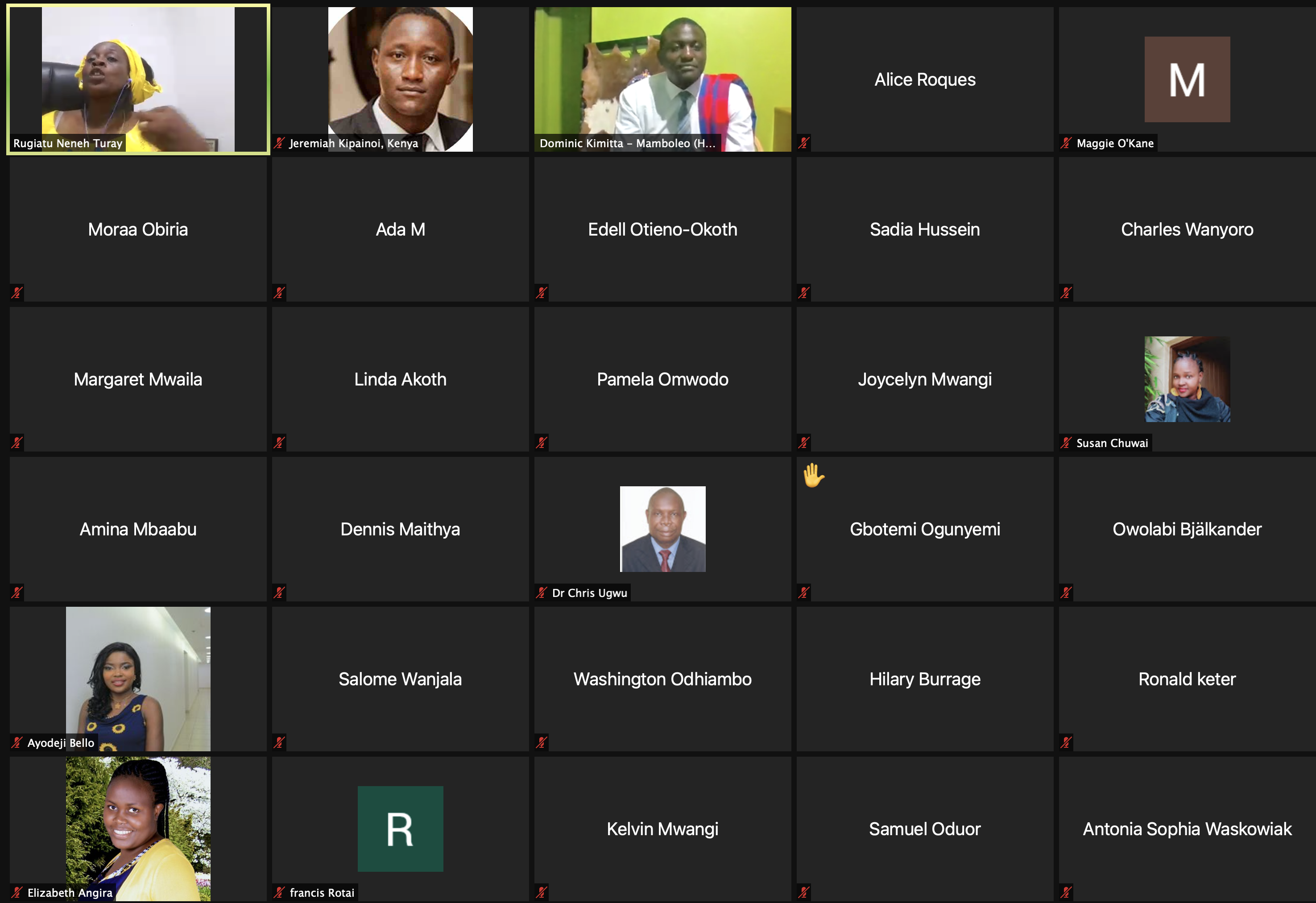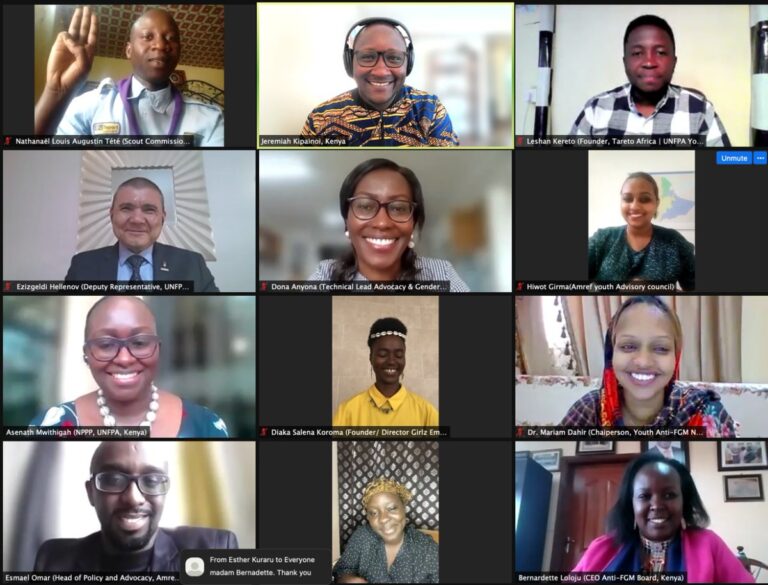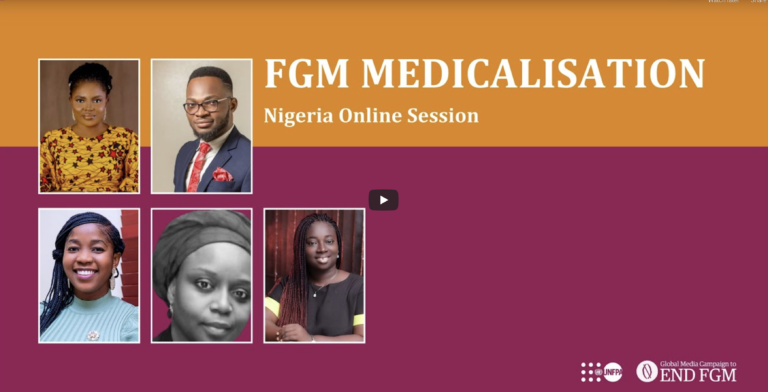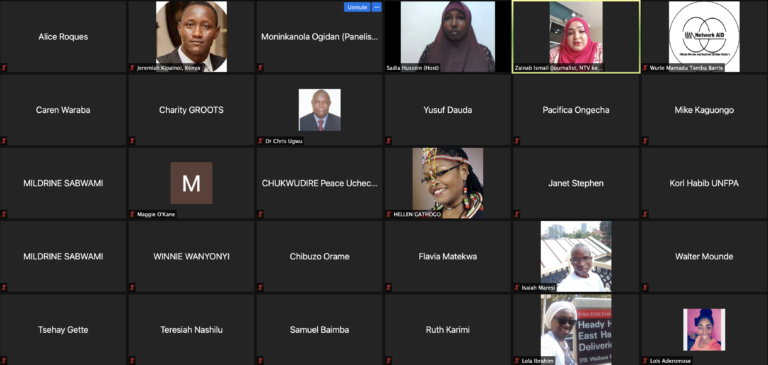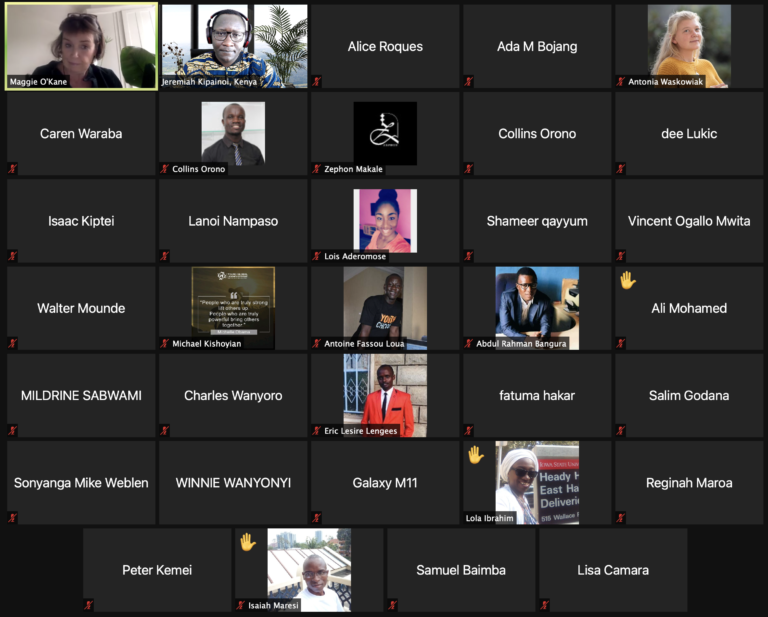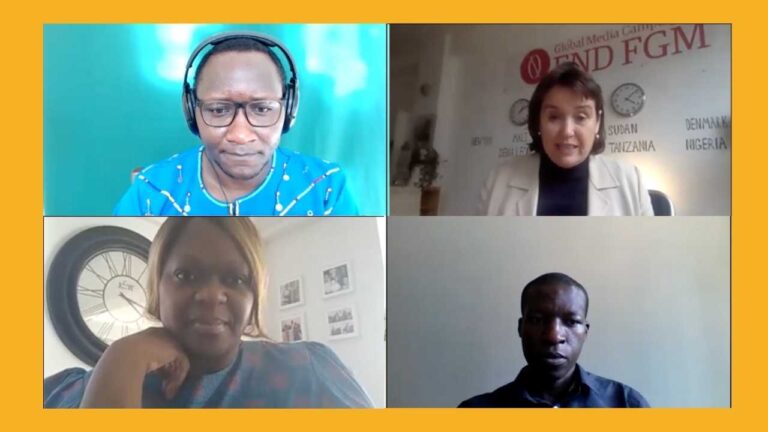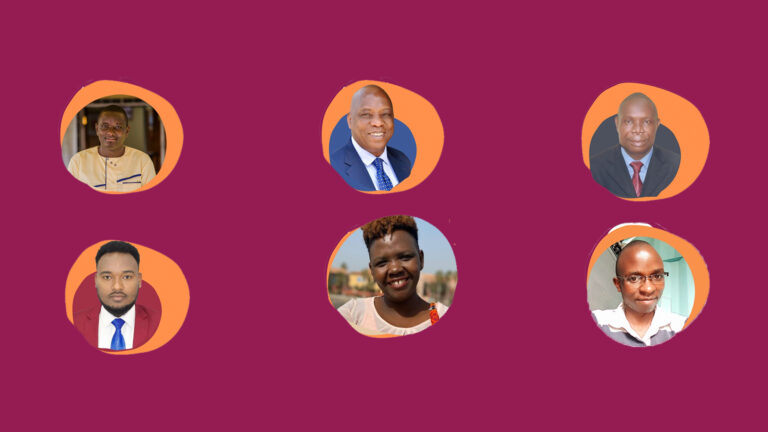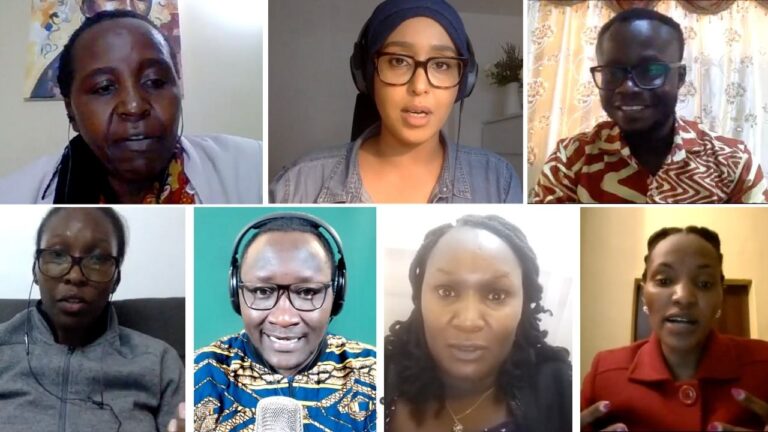Problem
Despite being in positions of influence, and having massive media coverage, most politicians prefer not to talk about FGM.
Purpose
This session sought to break down the reasons why politicians don’t speak about FGM, how to begin discussions on the topic with local/regional/national elected officials and how to rally more politicians to EndFGM media campaigns. The session also kickstarts a #PoliticiansToEndFGM campaign in the media.
Objectives
- Break down the reasons why politicians should speak more about FGM, and how it would impact policy change/implementation
- Share best practices on how to effectively engage and involve politicians in the EndFGM efforts (on local, regional, national scales)
- How to rally more politicians to speak about FGM on the media, why is it important?
- Launch of the next cycle of DAGs (16 days of activism) with a focus on #PoliticiansToEndFGM
Notes
(By Alice Roques)
- Media is one of the most powerful tools to engage all stakeholders involved in the fight against FGM
- FGM is a policy issue, and politicians across Africa have the power of shifting the policies. We need to shift the focus back to the policy-makers today through the use of the media
- Rugiatu Neneh Turay decided to get involved into politics when she was told that one cannot win an election if they are against FGM. She has been campaigning and trying to prove the opposite. She contested in an election and won with the highest vote in her locality, and succeeded in embedding FGM into policy efforts. She was able to influence a Minister to publicly condemn the practice. In Sierra Leone, FGM within the bondo culture is used as a means to buy votes in poor rural communities. They provide incentives for this activity to carry on.
- Politicians have a huge influence in their communities, they should be held accountable for their actions, taken for or against citizens’ well-being.
- Support for FGM can be used as an election winner. When you stand against it you can lose popularity
- Rugiatu started engaging political parties’ leadership and parlimentarians to establish in House of Partliament an anti-FGM committee. Now engaging cabinet members. Rugiatu had to engage with them one by one, showing them a video of the cutting.
- Where are we policy-wise? A nation needs a national strategy. There is one in Sierra Leone, but we need to lobby so this strategy is translated into a working document owned by the government, which will make it accountable to the international community.
- Sierra Leone was at 90% prevalence, which has declined with campaigning efforts.
- There is an age of consent, but FGM is not only about girls, it’s about women. We need a document owned by the government, in order to report progress.
- Removing FGM from Bondo bush doesn’t require additional laws, but a strategy that is implemented.
- Changing mindsets is the most difficult thing.
- Showing of a short video with clips of politicians communicating their views on FGM works
Questions from attendees - How do political statements impact anti-FGM media campaigning?
- Does FGM being framed as a cultural practice limit politicians’ role in ending the practice?
- What is the effect of using graphic imagery?
- Sierra Leone’s first Lady says no one has given her the evidence, which shows politicians are just shying away from the evidence that is there and shown to them. With the documentary, Rugiatu has been able to keep momentum up around the anti-FGM fight. The first time parliamentarians watched it… they did not want to, but they were encouraged to stay. You have to see what is being done because people try to minimize it. After seeing the video, people joined the campaign.
- We have to change the way people look at this, and one of the ways is for them to see. They have to see in order to believe.
- David Mande, based in Eastern Uganda campaigning for last 5 years:
- The video on politicians: impressed by President of Kenya
- In Uganda, implementation of the law is taking the wrong direction
- Commitments by top leadership are key
- Dr Chris Ugwu: Nigeria, 2015 Act criminalises FGM, CFM and other practices. The reality is, Nigeria is huge on policy-making but not on implementation. The issue of using videos for behaviour-change (parents, legislators, academics) always has tremendous impact. Always get consent of the people pictured/filmed. Whether FGM is practiced in hospital or house it has to end.
- Sadia Hussein:
- She has been engaging political leaders in Tana River, they can now confidently speak in public about FGM
- They used religious scholars to delink FGM and religion in the #FGMNotMyReligion media campaign. If Religious Leaders can say FGM in not in the Qu’ran or Bible, politicians will not fear speaking against FGM again
- Through the Religious Leaders, it becomes possible for politicians to speak against the practice. They have to be involved
- Clitoris as evidence in Court (happened in Uganda): Rugiatu says it’s sad for anyone to ask for the clitoris to be used as evidence because this is just a way of not wanting to take action, it’s an excuse not to seriously consider the case because using a clitoris as evidence of FGM is difficult
- The clitoris has a role in childbearing ~Rugiatu
- Women speaking out is powerful. You must ask them: are you willing to speak up? Their stories will make a difference, it is good to have stories. But as a strategy, we need to, when they fight to be elected, let’s start by having our candidates presented the scientific evidence on FGM, let’s have survivors share their testimonies. Politicians have to be influenced from the beginning of their campaigns, let’s start from the moment they start running for office.
- Power of stories, Mamboleo quotes Chimamanda Ngozi Adichie
- Joycelyn Mwangi:
- Feels from Rugiatu’s response, wonders why women have to prove the consequences of mutilation, this is a case of human rights. What we need is to strengthen legislation. In countries where laws are not set this is what should be done
- Doesn’t understand why clitoris would be asked as evidence in court
- If a lady has undergone FGM, the first place that lady should be taken to is a hospital, where evidence can be gathered to show she has undergone FGM
- Frameworks exist for police officers, doctor to report FGM. All countries should have these frameworks
- Declarations should be followed by an increase in the number of women judges and legislators
- Kenya is heading towards general elections, is it time to start holding them accountable, raising awareness within the parties?
- What role for the media?
- We can’t limit the media to TV and radio
- From the moment they start campaigning they need to be reunited and speak on FGM
- Media is also town hall meetings
- Second thing is to ask media people to record them
- If you take politician to the radio they can change their whole discourse
- Start talking about other topics, let them speak freely, start recording, and then begin a discussion on FGM
- The activists identify and bring the influencers, and the journalists should moderate, they have a training and know how to ask the right questions
- Follow-up with politicians, make sure they follow their (campaign) promises. Call them out, they have a responsibility to take care of the people.
- Let them sit, observe, and listen.
- Once you’ve had informal discussions about FGM, bring politicians to the radio
- Take your time to bring them onto the radio, and make sure not to begin the conversation with FGM
- Journalists should always ask questions on FGM during press briefings/conferences
- Dennis Maithya: anti-FGM campaigners are good at what they do, artists produce songs and are invited to gatherings to perform these songs, with politicians dancing with them. After meetings and declarations politicians should be held accountable. If women are empowered, why don’t they come together and speak with one voice against FGM?
- Gbotemi Ogunyemi: give heads up if you use graphic imagery (to audience, media platform). Let’s engage local politicians better, more. National politicians will only engage once every campaign/election, Local elected officials will keep engaging with you.
- What next?
- Rugiatu: politicians are often insincere. But at the end of the day land, health, economics are also FGM-centred, engage them with sincerity
- Where are the men? Men make the majority of political leaders. If they don’t take the lead, who are you going to convince?
- Vote on the hashtag: #PoliticiansToEndFGM


